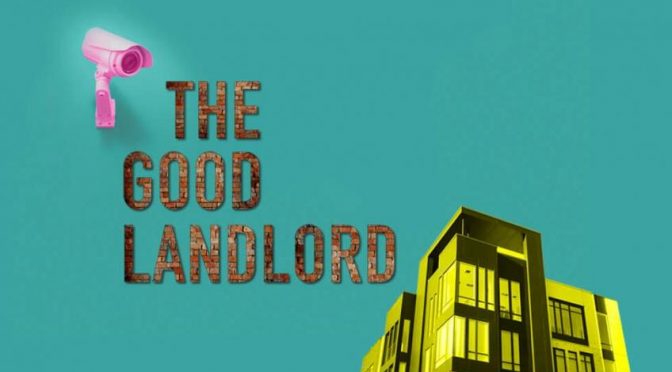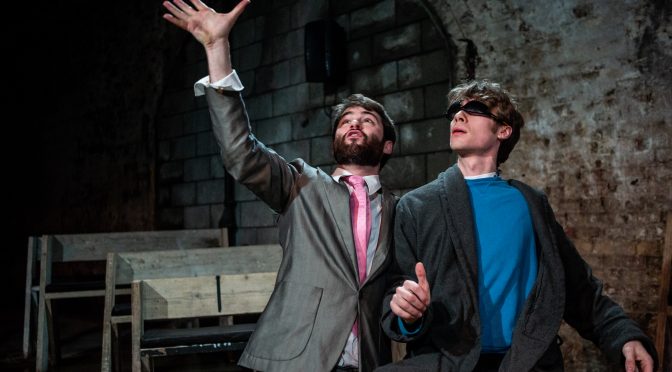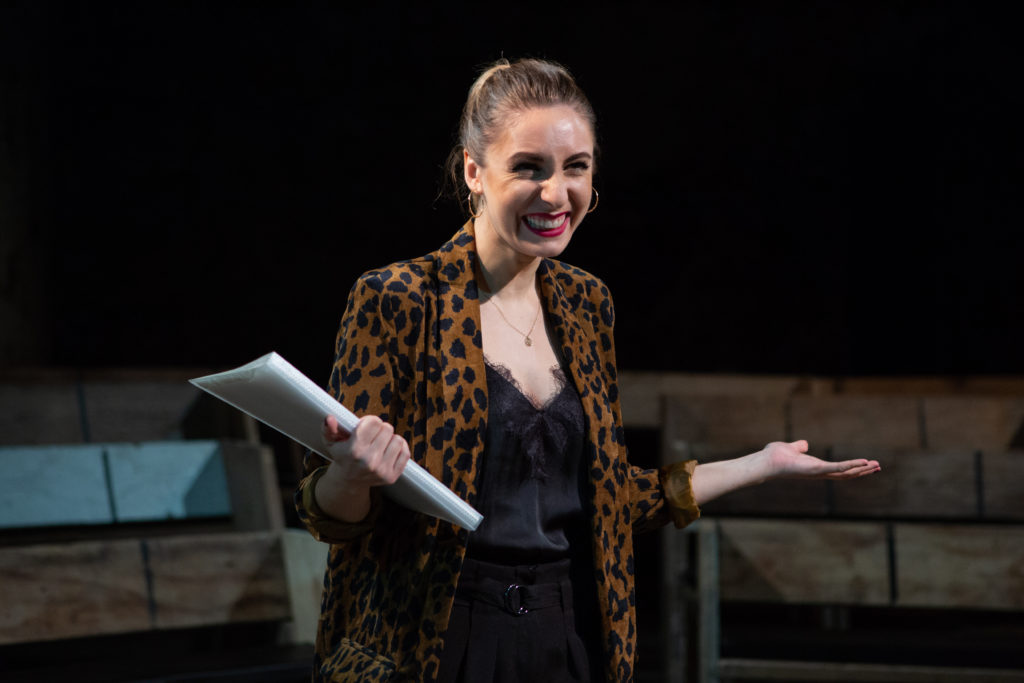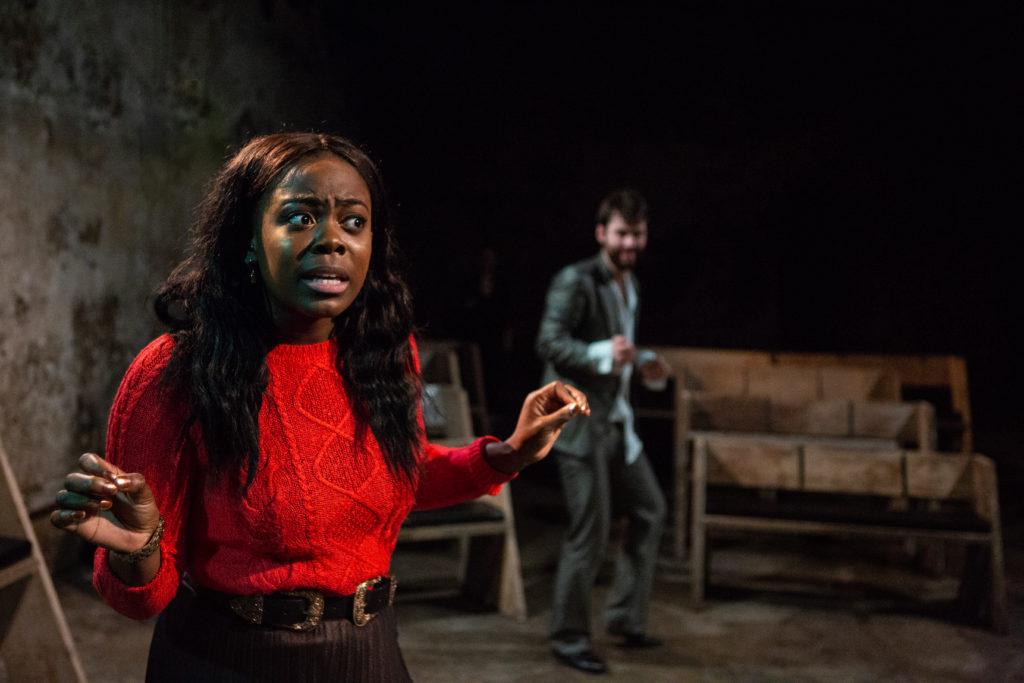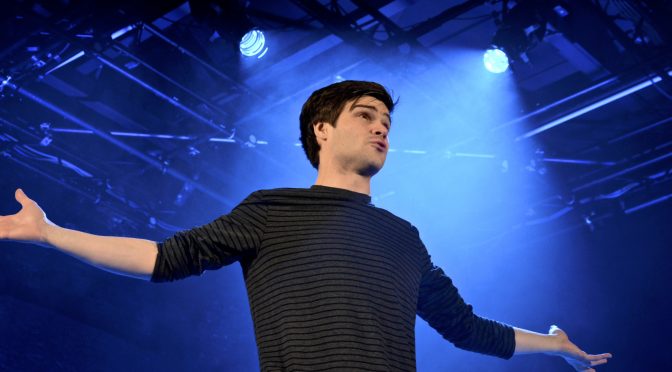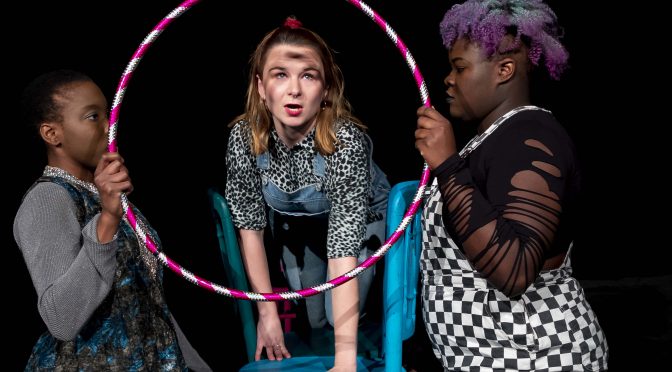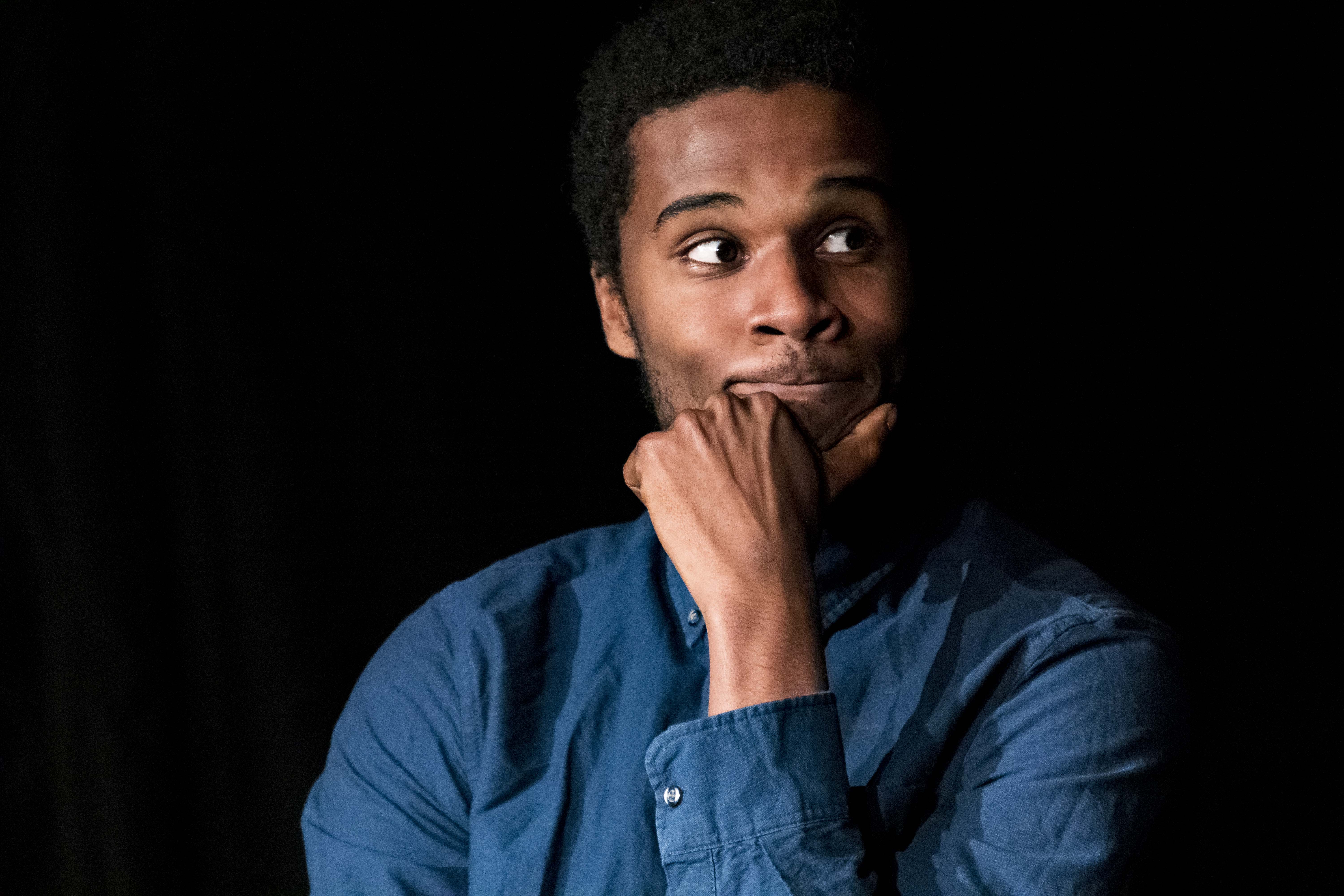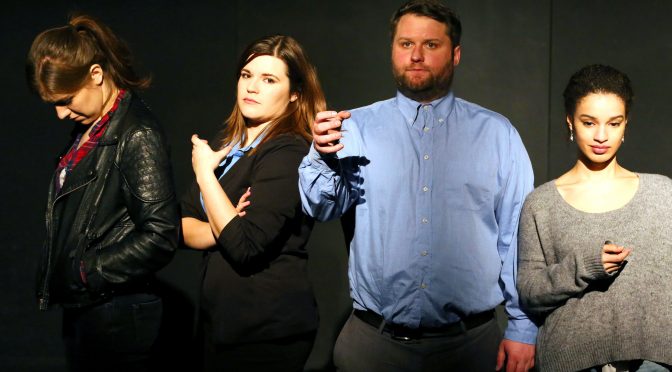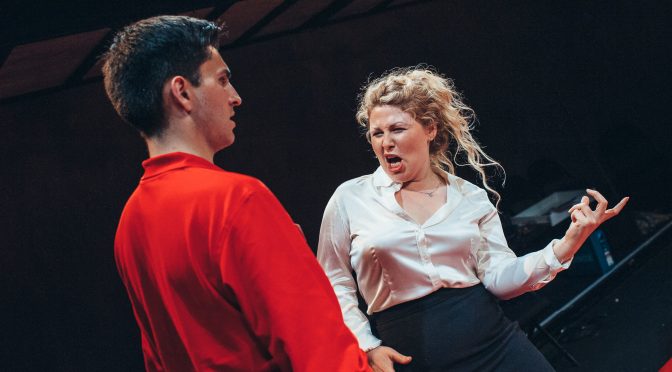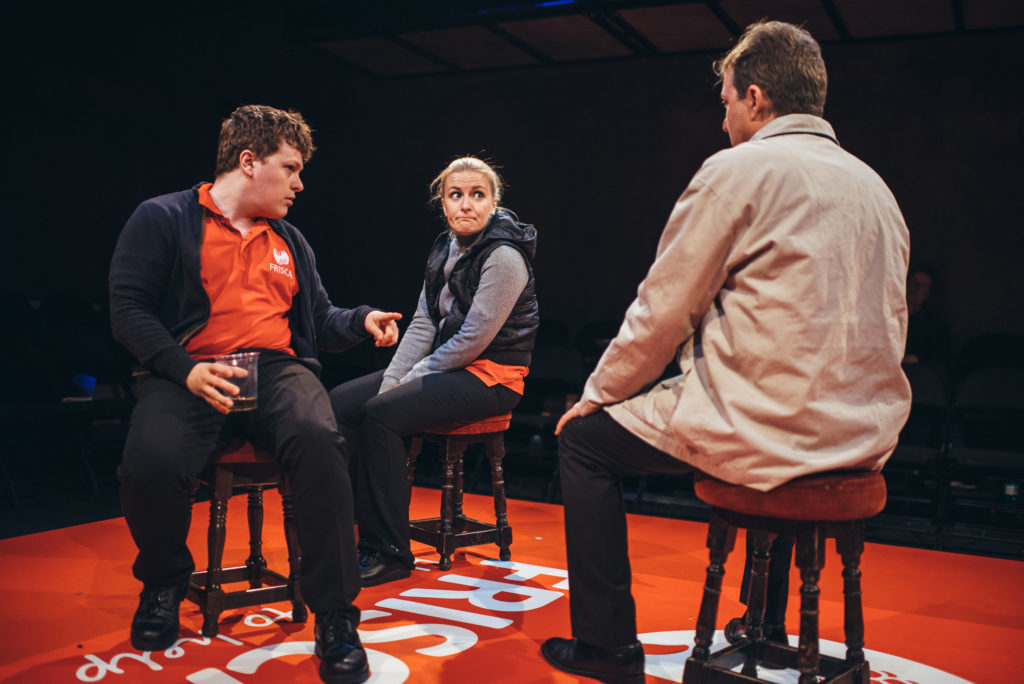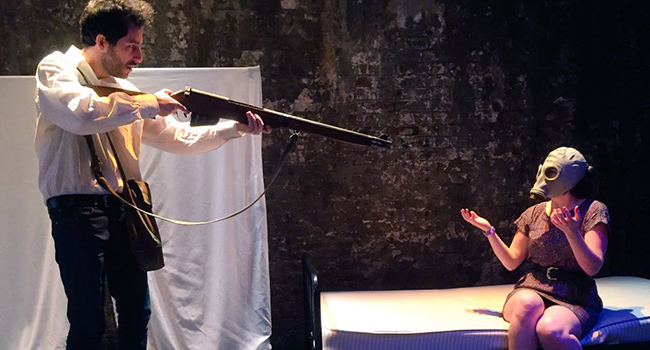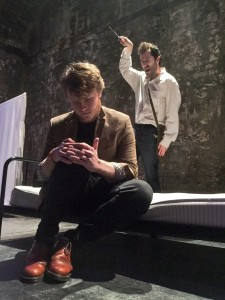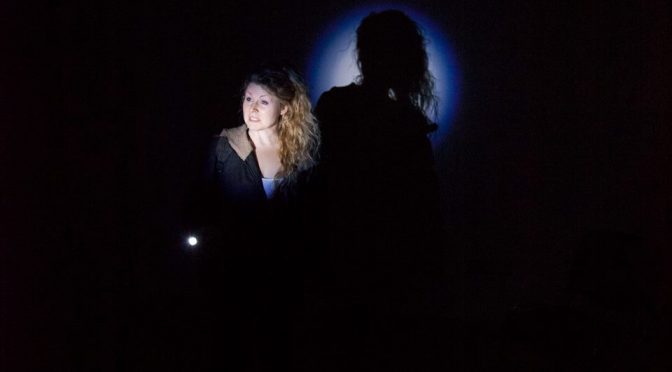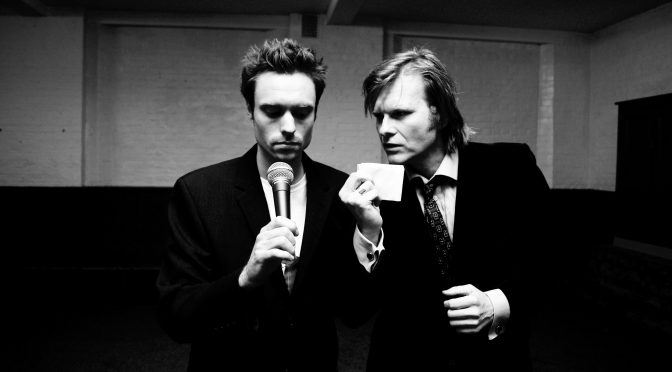This play’s première early in the year at the Vault Festival was a fraught affair, given the recent death of its talented writer Michael Ross. Having collaborated on the play with Metamorph Theatre, the author’s absence for finishing touches was clear. But also obvious, thankfully, was the play’s potential. The story of a London flat with cheap rent because its tenants are to be watched by cameras is topical and challenging. The script is a sharp comedy with clever content. And now, given more time, its quality shines through.
Director Cat Robey deserves much of the praise. The production is sharper, pacier and generally more confident. The plot comes to the fore as flatmates Tom and Ed react to being recorded – we want to know what happens next. The balance between the serious themes in Ross’s writing – relative poverty, pervasive technology and the painful issue of body image – are all deftly handled. The characters feel grounded, a delicious mix of introverts to root for and extroverts you can laugh it (although I suppose that might be the other way around for some!). A quartet of strong performances come into their own with the aid of Ross’s witty and intelligent lines creating interesting characters just the right side of satire.
Rupert Sadler gives a strong performance, having bedded down into his role as Ed. Initially calmer than in the show’s first outing, Ed’s desperation to keep living in the flat develops nicely into a mania. And his fascination with the “all-mighty, all-seeing” landlord leads to a clever play with masculinity that does the text justice. Above all, Sadler is funny throughout. Likewise, Phoebe Batteson-Brown shows her tremendous comic skills with a performance of great assurance – don’t miss a single move she makes as the scary estate agent Clarissa, for each intense twitch is worth a laugh. While these two characters aim at conventional success, Ross points out that their grasp on reality is thin; flights of fancy Ed and Clarissa embark on are deliciously delivered highlights.
Joining the team is Sophia Eleni, playing Clarissa’s PA, who skives off work to become a voyeur of the guys. There’s still room for growth here, as the role connects to an examination of working life that fascinated Ross and could be developed. Nonetheless, Eleni makes a sweet love interest for the landlord’s more reluctant tenant Tom, played by Theo Ancient. Having recently toured Ross’ The Shy Manifesto, Ancient knows the author’s work intimately and it really shows. Tom is a fascinating mix of insecurity and confidence, a balance of sensitivity with an intelligence that doesn’t suffer fools.
The Good Landlord is still a work in progress (according the company’s hand out). But the improvement here is commendable and the show is on the way to becoming a fringe hit. The plan now is to take the play to Edinburgh next year and good luck to the team. Follow @M_MorphTheatre for news. I don’t give stars on this blog, for fear of being too reductive, but this is a firm four with no small amount of confidence that a sought-after fifth is on the way.
Until 16 July 2019

